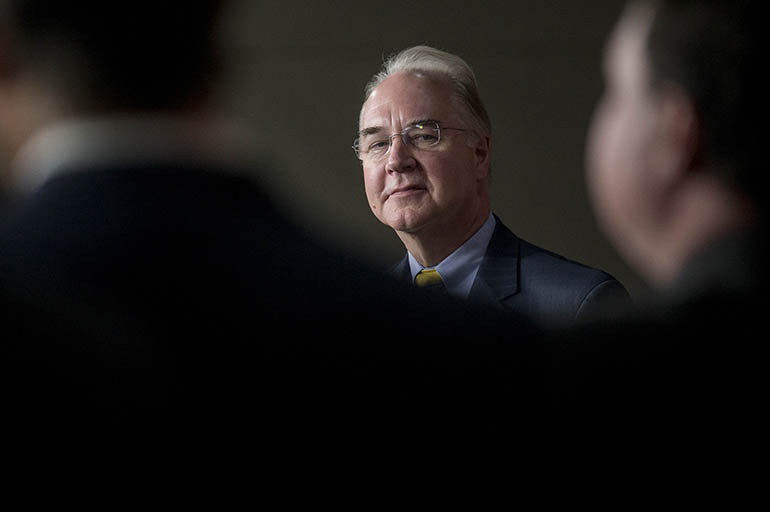The Trump administration said Thursday that the financial outlook for Medicare’s hospital insurance trust fund improved in the past year due to health costs rising more slowly than expected and predictions that enrollees will use hospital services less often.
The report said that trust fund would last through 2029, one year later than what was projected last year. Two years ago, 2030 was the projected depletion date.
Medicare Part B premiums — which cover visits to physicians and other outpatient costs — should remain stable next year, the trustees said. About a quarter of Part B costs are paid for by beneficiary premiums with the rest from the federal budget.
In contrast, the Part A hospital trust fund is financed mostly through payroll taxes.
The report, from the trustees of the Medicare program, noted that projected costs of the program assume the Affordable Care Act stays in place. President Donald Trump and Republicans in Congress are trying to overhaul the law, which when enacted in 2010 added several years to the fiscal life of the trust fund.
Health and Human Services Secretary Tom Price, one of four Medicare trustees, also said the hospital trust fund forecast was secure enough that it would not trigger an ACA provision to make automatic cuts to the program. Those cuts are required by the ACA when spending is expected to exceed certain benchmarks.
Despite the slightly improved outlook, the trustees warned that the aging of the baby boom population and rising health care costs will cause Medicare expenses to increase from 3.6 percent of gross domestic product in 2016 to 5.6 percent of GDP in 2041, and then level off somewhat to 5.9 percent by 2091.
As in previous trustee reports, the latest analysis warned that Washington should address the financial challenges of Medicare as soon as possible to avoid having to cut benefits to millions of retirees and seniors.
The trustees said national health expenses have slowed considerably in recent years, although it is uncertain if this is a result of the Great Recession, which ended in 2009, or efforts taken by the federal government and private sector to change doctor and hospital reimbursement programs. Senior administration officials said some of the slowing growth in Medicare was due to Obamacare saving money through its accountable care organizations, which pay doctors and hospitals a lump sum each month to care for senior citizens.
Medicare provides health coverage to nearly 57 million people, including seniors and people with disabilities. It has added 5 million people since 2013.
“For 51 years, Medicare has played a crucial role in providing healthcare for America’s senior citizens,” Price said in a statement. “Unfortunately, on its current trajectory, Medicare’s hospital insurance trust fund will be depleted in just over a decade. … As the Trustees Report says, this means that reform to the program is needed.”
Medicare spending were about $679 billion last year. The hospital insurance trust fund helps pay hospital, home health services, nursing home costs and hospice costs.
This story was produced by Kaiser Health News, an editorially independent program of the Kaiser Family Foundation.
